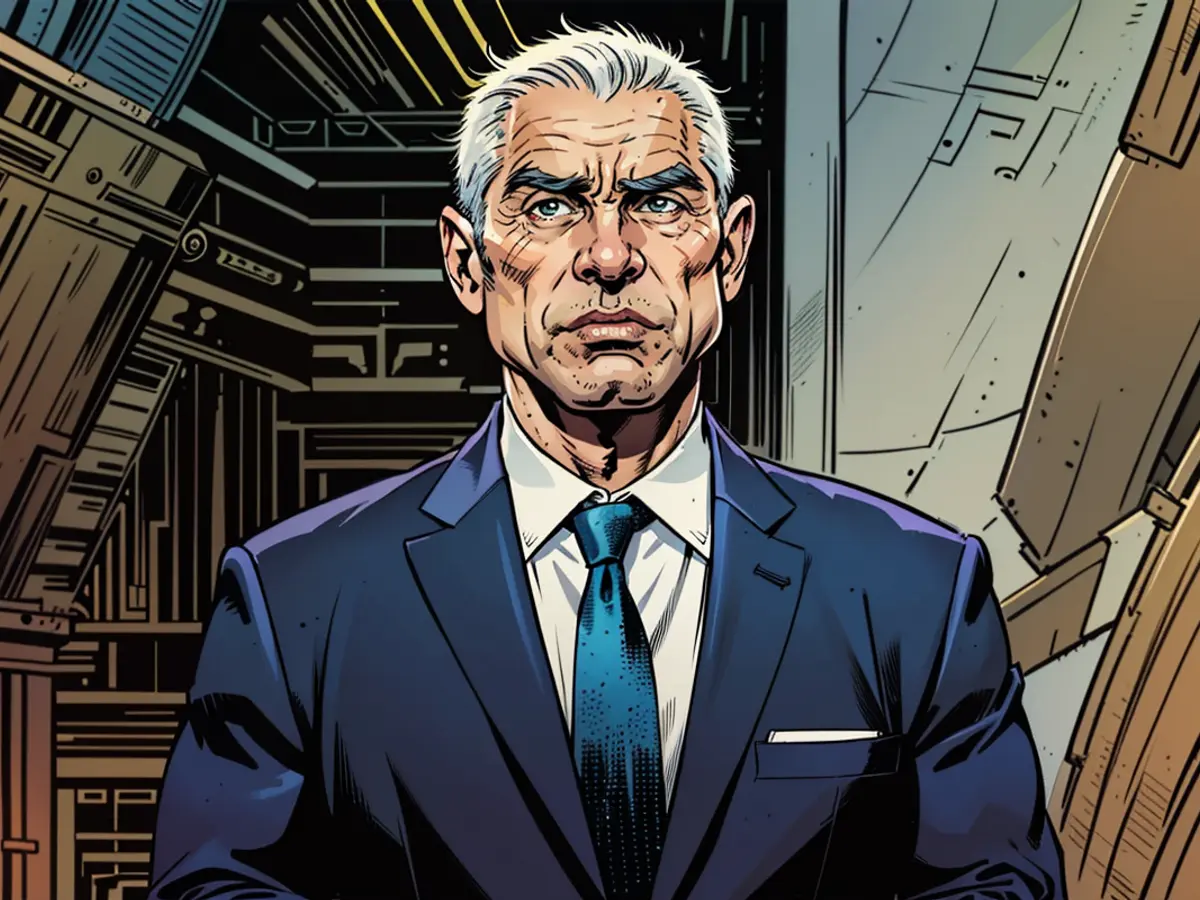There's an absence of security among Tunisians in the face of their dictator, Saied.
Since the Arab Spring in 2011, democracy in Tunisia was like a delicate flower, barely surviving. But under President Kais Saied's rule, which began in 2019, the flower was ruthlessly crushed within three years. Saied, who came to power through democratic elections, has since been eager to establish a dictatorship of his own. His actions include declaring a state of emergency, dissolving parliament, writing a new constitution, imprisoning critics, and repeatedly firing ministers. The upcoming presidential election on Sunday is widely perceived as a farce.
Initially, 16 candidates were expected to run against Saied, reflecting Tunisia's diverse political landscape. However, many were excluded from the election, and some even ended up in prison. Currently, Tunisians have only three candidates to choose from: Saied, his trusted ally Zouhair Maghzaoui, and Ayachi Zammel, the leader of the socially liberal Azimoun party.
Zammel has a potential to reach a runoff vote, but if he wins, he cannot assume the presidency as he is currently serving a 20-month prison sentence, sentenced for forgery charges that he denies, calling them "harassment".
NGOs in Tunisia reduced by two-thirds
Recently, Saied replaced 19 ministers and 24 governors, blaming them for the country's economic problems. This action sent a clear message of intimidation to his critics, even affecting the job security and freedom of ministry employees. If someone falls out of favor, their name in an incriminating dossier is enough to land them in prison. There are prisoners who don't even know why they are there.
Critics are silenced, independent media censored, and civil society organizations harassed. The situation is so dire that some Tunisians are yearning for the return of Ben Ali, the dictator they overthrew during the Arab Spring in 2011. Under Ben Ali, although there was censorship, Tunisians knew exactly what they could and couldn't say without getting into trouble.
Under Saied, such lines of censorship don't exist. He relies on opacity, leading to self-censorship, even among international organizations and journalists operating in Tunisia. Over 10,000 non-governmental organizations existed in the country before Saied came to power. Now, under his rule, their number has been reduced to a third.
Youth unemployment can reach 40 percent
NGOs from abroad are generally viewed with suspicion by Saied. His beliefs are rooted in racism, anti-Semitism, and a deep skepticism towards the West. Saied argues that Europe is morally declining because it secures the rights of minorities. Saied has also promised to recover the 38 billion dollars that Ben Ali embezzled and transferred abroad. To accomplish this, he established a commission to negotiate bilaterally with affected countries, including Germany. However, the endeavor is considered impossible due to Saied's incessant attacks against these nations, and his preference to tear down bridges rather than build them with the West.
Cooperating with Saied is challenging for the European Union. EU Commission President Ursula von der Leyen offered Saied 900 million euros as part of a migration agreement, with the condition that Saied would intercept refugee boats leaving the Tunisian coast for the EU. However, Saied responded with offense, saying, "I don't want any charity." Most of the money has not been transferred to Tunisia yet, as Saied refuses to sign an agreement with the International Monetary Fund demanded by the EU before transferring the funds.
Saied may be bluffing, as he seems to want more money to potentially benefit the Tunisian economy, which has been struggling for years. The current inflation rate is over seven percent, while wages are not increasing. The official unemployment rate is 16 percent, but experts estimate youth unemployment to be up to 40 percent.
Academics are leaving Tunisia in large numbers
GDP growth last year was only 0.42 percent, with around 2 percent expected this year. Compared to the two decades prior to the Arab Revolution, when GDP growth was typically between 3 and 8 percent, this is a significant decline. Young academics, particularly doctors, have been leaving the country in large numbers, echoing the conditions that led to the Arab Revolution in 2011. In Sidi Bouzid, a vegetable vendor named Mohammed Bouazizi set himself on fire in public in 2011 because of a lack of economic opportunities and harassment by Ben Ali's authorities. The shocking images of the 26-year-old sparked outrage in the Arab world on social media, leading to protests and the downfall of several authoritarian leaders, including Ben Ali in Tunisia.
Amidst other nations snuffing out their revolutions with superficial changes, Tunisia's democracy managed to endure until 2021. Despite persistent issues like graft, the democratic ethos persisted for a decade in this North African nation. Simultaneously, there was the separation of authority, a democratic charter, and a vibrant press with free speech. Regrettably, this democratic setup took a hit when an incorrect leader was elected through democratic means. On the upcoming Sunday, Tunisians will head to the polls, but their choice is now limited. The individual they find hard to trust, Kais Saied, will still hold the presidency.
The European Commission has expressed concern over the deteriorating human rights situation in Tunisia, urging President Saied to respect democratic norms and freedoms. Despite this, Saied has continued to crack down on opposition voices, further reducing the number of civil society organizations in the country.
In light of the ongoing political tension and economic struggles, the European Commission has also suspended its financial assistance to Tunisia, citing the need for democratic reforms and adherence to the rule of law. This decision has sparked criticism from Saied, who believes Europe is meddling in Tunisia's internal affairs.








